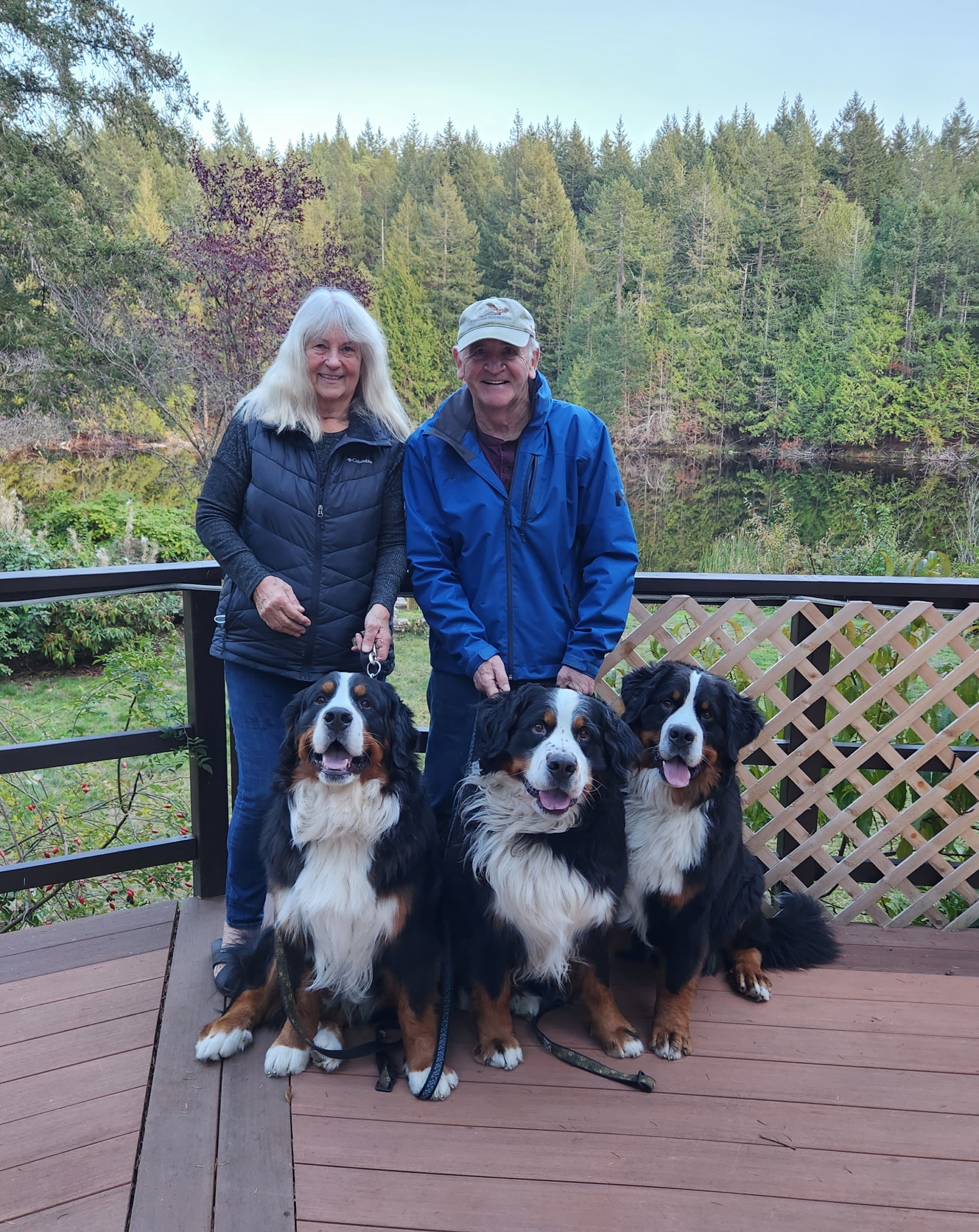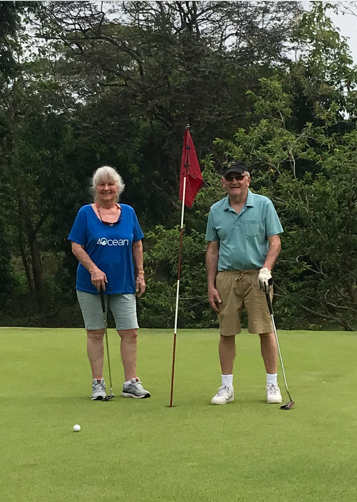
Together, Diane and Garry have taken on many of life’s highs and lows. The two were high school sweethearts, then separated for several years before reconnecting 44 years ago. It was together they navigated a life-threatening health scare two years ago for Diane.
While walking her beloved Burmese Mountain dogs, Diane coughed into a tissue and saw blood. This prompted a visit to urgent care where medication for pneumonia was prescribed, as X-rays showed her lungs looked unwell.
Two weeks later Diane’s condition showed no sign of improving, so her husband Garry called an ambulance. At Victoria General Hospital doctors sensed something greater was wrong and transferred Diane to Royal Jubilee on November 5, 2021.
“She was in emergency and they called me, saying to get in right away,” says Garry. “Diane’s condition was dire.”
Doctors in the Intensive Care Unit determined Diane had vasculitis: an autoimmune disease that attacks the patient’s blood vessels leading to serious internal bleeding. Diane was placed in a coma to protect her brain, lungs, heart, and kidneys. Garry remembers Diane having about 12 intravenous tubes, including a breathing tube, as doctors and nurses worked to stop the bleeding.
“There was regular medical imaging, both CT Scans and MRI, as well as X-rays, to determine what the long-term damage to her organs might be,” recalls Garry. “With the bleeding, there was also concern about stroke, so Diane underwent a procedure to place a small metal filter below her heart to stop any clots.”
Garry says Diane’s doctors were supportive, but realistic. He was told she may not survive the night.
“I got everybody in there: her sons, her sister and her brother-in-law,” remembers Garry, tearing up. “Everybody said goodbye and I stayed at the hospital that night… and her heart stopped, failed. I was beside the bed and watched as they thankfully got her heart beating again.”
With the bleeding stopped, medical imaging showed Diane’s kidneys weren’t badly damaged. MRI showed her brain was healthy, while CT scans revealed the same for her lungs. With the clear scans, the decision was made to transition Diane off the breathing tube and out of the coma.
“Initially, there was so much worry about brain damage,” says Garry. “After 21 days in a coma, slowly Diane started to come around.”
To aid in the healing process, Diane started kidney dialysis and physiotherapy. After 71 days at the Royal Jubilee Hospital, Diane was sent home. Doctors shared with Garry that they only see one to two cases of vasculitis a year, making the couple thankful for the care teams who had the expertise—and the tools—to navigate the rare condition and save Diane’s life, twice.
“Almost every day Diane received a scan to monitor her brain and other organs,” says Garry. “The ICU doctors and nurses had a meeting every morning to plan the next steps and scans; Diane was so well looked after.”
Diane and Garry ask others to consider supporting Imaging is Power, so advanced imaging technology is there for everyone in their time of greatest need.
 Diane remains on an immune suppressant, to ensure the vasculitis remains dormant. Once a month, she also has her kidneys and other organs checked. Aside from some muscle and joint discomfort, at 72, Diane is healthy. She has returned to showing her dogs and growing dahlias on the couple’s Highlands hobby farm.
Diane remains on an immune suppressant, to ensure the vasculitis remains dormant. Once a month, she also has her kidneys and other organs checked. Aside from some muscle and joint discomfort, at 72, Diane is healthy. She has returned to showing her dogs and growing dahlias on the couple’s Highlands hobby farm.
As she and Garry continue life’s journey together, they extend their deepest gratitude to the ICU care team at Royal Jubilee.
“Incredible people are working in our hospitals, and need community support,” says Diane. “The doctors and nurses are amazing. The self-sacrifice that they give needs more recognition. They saved my life.”




